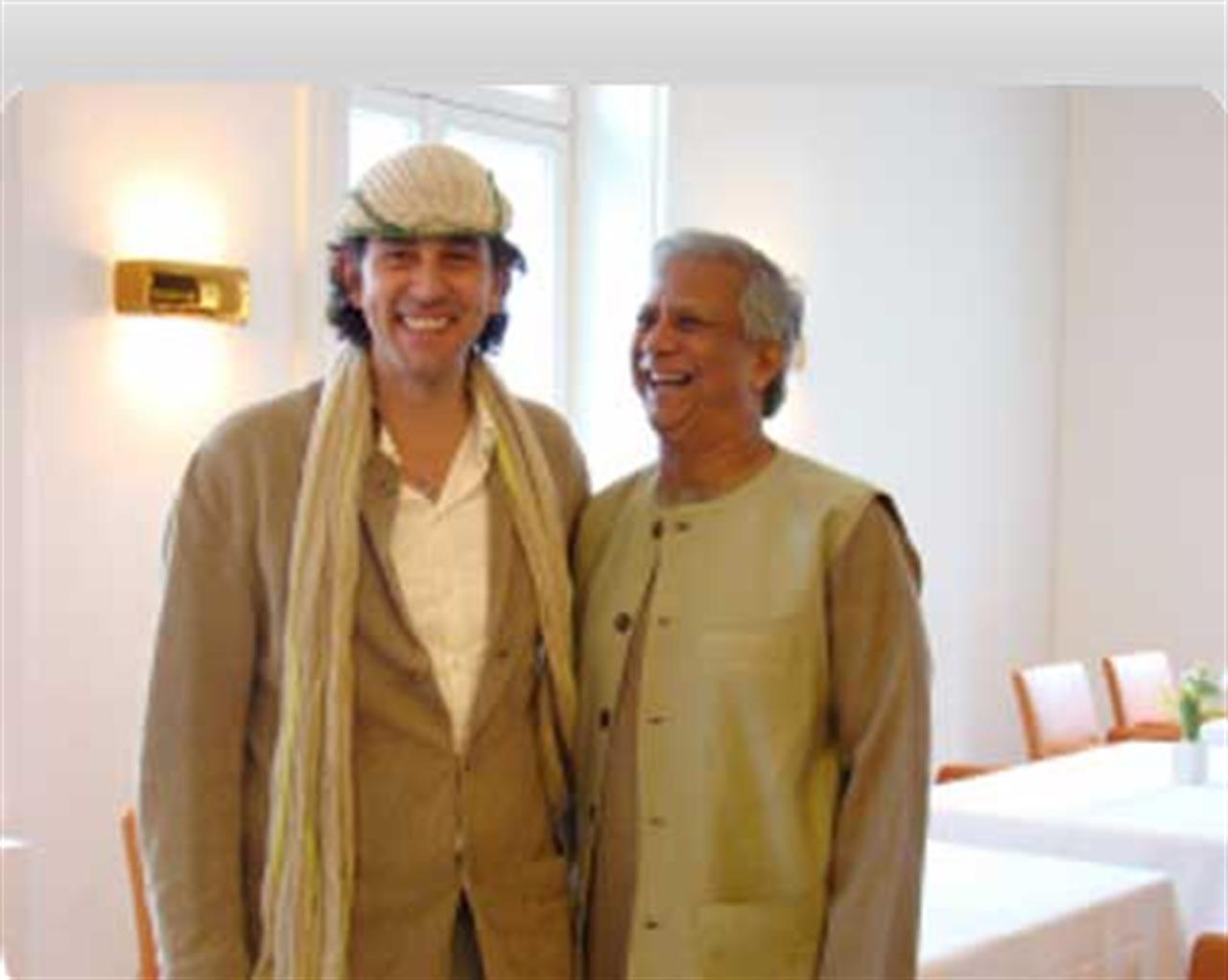Non profit
Humility, dignity and an infinite inspiration to do better
Interview with Hans Reitz, Grameen Creative Lab founder
di Rose Hackman

“Social business addresses the very vital concerns of mankind.”
These words belong to Muhammad Yunus, founder of the Grameen bank, and writer of ‘Banker to the Poor’, but they could have just as well been attributed to Hans Reitz, a German social entrepreneur. Indeed, when the two met in 2007 in Berlin, an instant friendship was formed and within a couple of years their tie was formalised through the establishment of the Grameen Creative Lab.
Their common vision, they say, is to eradicate poverty in the world by accelerating the proliferation of Grameen Social Businesses. This they do through a number of different channels. From offering consultancy services to NGOs on how to become self-sufficient, to advising corporations on how to be more ethical, to organising workshops and brainstorming sessions to explore the possibilities of the model they promote.
The Lab – a collaboration between the Yunus Centre in Dhaka, Bangladesh and circ responsibility in Wiesbaden, Germany – is an active organisation that sees its founders and staff tour the world spreading the Grameen word to anyone who will listen.
Vita Europe caught up with Reitz at a Social Business Lab he organised in collaboration with the University of Bocconi last 8 March in Milan.
What defines the Grameen Social Business approach?
Resolving social problems, namely extreme poverty, through a business model. What we are doing is providing a framework for tackling social issues by combining business know-how with the aspiration of social change. Our original example is the Grameen Bank.
What you are promoting therefore is more of a business model than the system of microcredit…
Yes and no. A great way of enforcing microcredit globally is following the Grameen Social Business model, but the model itself can be used in innumerable amounts of ways. We have remained partly focused on microcredit though, as we believe that, if applied correctly, it can resolve poverty worldwide: a business for the life quality of all.
Even in developed countries? What of the claims that microcredit can only work in developing countries?
They are incorrect. Of course each country is different, but this is a universal model. In the past, microcredit has perhaps not functioned in Western countries, because it wasn’t aiming to help the very bottom part of the population. In Europe, we need to seek out the poorest of the poor – not that intermediary group which is living on little but is still surviving. In this way, I think microcredit could be a system which could enormously change the lives of 14 million Europeans.
Any plans to set up such a bank in the near future in Europe?
Yes actually, here in Italy. The project is still under construction, but the plan is to set up a microcredit bank in Bologna, partnering with the Bologna university and UniCredit bank.
Why have you sought out university audiences in your Grameen Creative Lab outreach activities?
For the simple reason that they are so open-minded. They haven’t yet been conditioned into thinking in a certain way. Instead of saying that eradicating poverty is impossible, you will feel them open to resolving it. The first step is belief and motivation.
Just students then…
No, we are also reaching out to civil society protagonists, entrepreneurs as well as simple individuals. Anybody who can find inspiration and ideas from our experiences really, our movement needs a huge variety of people from all marches of life in order to have a collective impact on our planet.
The formula you put forward is very strict: there are seven principles that need to be followed. The last one is “do it with joy” – was that just an afterthought to make light of a heavy situation?
Far from it. Having an attitude full of joy is crucial. Your mindset and approach to a problem is reflected directly in the world around you. If you are filled with fear, you will find a world full of fear and suffering. We need to be optimistic because it is far too late to be a pessimist. What we are doing here is believing in the infinite creativity of human kind: give anyone an opportunity and they can make it in to gold.
What makes the Grameen Social Business model better than the other social models on offer elsewhere?
Our humility, our dignity and our infinite inspiration to do better.
17 centesimi al giorno sono troppi?
Poco più di un euro a settimana, un caffè al bar o forse meno. 60 euro l’anno per tutti i contenuti di VITA, gli articoli online senza pubblicità, i magazine, le newsletter, i podcast, le infografiche e i libri digitali. Ma soprattutto per aiutarci a raccontare il sociale con sempre maggiore forza e incisività.
